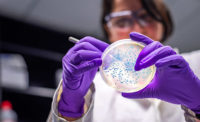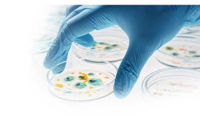Commentary | Regulations & Legislation
FSIS updates animal-raising, non-GMO feed claims

The U.S. Department of Agriculture’s Food Safety and Inspection Service (FSIS) recently updated two guidance documents regarding meat and poultry labeling claims. The first pertains to animal-raising claims, such as grass fed or raised without antibiotics. The second involves negative-labeling claims regarding not using bioengineered or genetically modified ingredients or animal feed.
Animal-raising claims
Label claims regarding the housing, diet and breed of livestock and poultry from which meat and poultry are derived are considered special claims that must be evaluated and approved by FSIS’ Labeling and Program Delivery Staff (LPDS). LPDS requires establishments to provide documentation to support any animal-raising claim that appears on a meat or poultry label.
On Dec. 27, 2019, FSIS released the guidance document Food Safety and Inspection Service Labeling Guideline on Documentation Needed to Substantiate Animal-Raising Claims for Label Submission (the Animal Raising Guidance). The Animal Raising Guidance updates the Oct. 5, 2016, guideline that initially established the type of documentation required for animal-raising claims. There are numerous changes, but some of the significant changes include:
- Pork products labeled as having been raised without hormones no longer need a qualifying statement. This is because federal law permits the use of certain hormones in swine;
- The terms “Raised Antibiotic Free” and “No Added Antibiotics” have been added as acceptable terms to disclose that the animals were not administered antibiotics;
- Labels including animal-welfare and environmental-stewardship claims will have additional requirements regarding descriptive language and information explaining the meaning of the claims.
FSIS took comments specifically regarding free-range claims for poultry products until Feb. 25, after presstime on this article.
Non-Bioengineered/Non-GMO Claims
On Dec. 30, 2019, FSIS released updated guidance titled Labeling Guidance on Statements that Bioengineered or Genetically Modified Ingredients or Animal Feed Were Used in Meat, Poultry or Egg Products” (the Negative Biotechnology Claim guidance).
FSIS considers claims such as “contains no bioengineered ingredients,” “contains no GMO ingredients” or “(animal) raised on a diet containing no genetically engineered ingredients” to be negative claims that cannot be generically approved. FSIS released the initial version of the Negative Biotechnology Claim Guidance in August 2016. The updated version of the guidance has two primary changes.
First, FSIS will only approve negative claims verified under a third-party certifying organization consistent with how it approves other special statements and claims. FSIS will require that label applications include a current copy of the third-party certificate and a written description on how the company will ensure compliance of claims. Also, with the exception of certified-organic products, labels making negative claims must include a website link to information regarding the claim and certification process.
Second, FSIS is requiring additional information about the certification and labeling of organic-certified products. In response to industry comments, FSIS will not require organic-certified products that choose to have negative biotechnology claims to have a separate third-party certification. However, any negative biotechnology claim must have an asterisk connecting to an explanation stating “Produced in compliance with the USDA Organic Regulations.”
The Negative Biotechnology Claim guidance is considered final and FSIS is no longer accepting public comments. NP
Looking for a reprint of this article?
From high-res PDFs to custom plaques, order your copy today!





